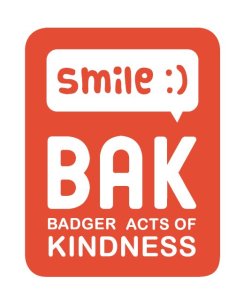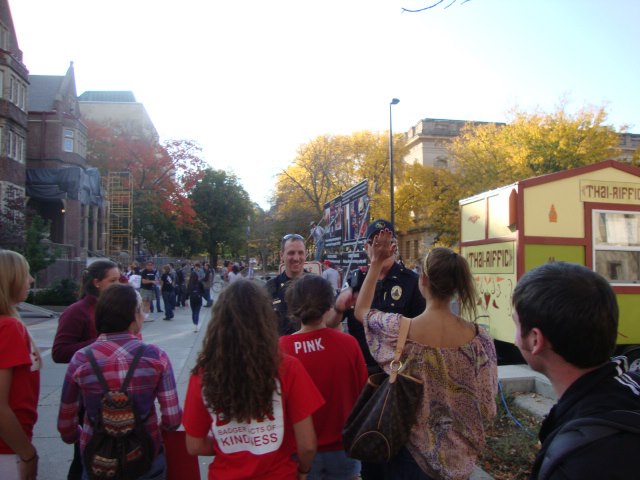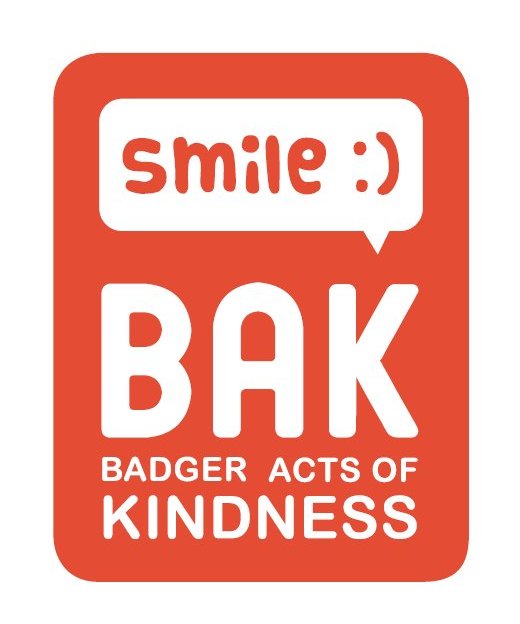Marc Zarefsky, March 20, 2014
Mollie Barden was working in her Wisconsin dorm room two years ago on Halloween when there was a knock on her door. Begrudgingly, she answered, expecting rowdy kids looking for treats. What she found instead would help change the course of her college experience.
 Barden was met by five members of Badger Acts of Kindness (BAK), a student group focused on spreading happiness and kindness across the UW campus. The students were "reverse trick-or-treating" and giving candy to unsuspecting students like Barden.
Barden was met by five members of Badger Acts of Kindness (BAK), a student group focused on spreading happiness and kindness across the UW campus. The students were "reverse trick-or-treating" and giving candy to unsuspecting students like Barden.
"At first I thought they wanted candy, and I was frustrated because I didn?t have any and I was busy," said Barden, now a sophomore at UW. ?Once I realized both what they were doing and how much fun they were having doing it, I thought this would be a really cool thing to be a part of."
Today Barden holds a leadership position and is an active participant in BAK, whose members count the reverse trick-or-treating as just one of countless acts of kindness they offer across campus throughout the year. BAK members also write inspirational notes and leave them in public places, hand out Valentine's cards and offer free hugs and high-fives. Those simple signs of support are the group's staple and what BAK has become known for.
"We?ve had people come up to us and say, 'Oh yeah, you?re that club that gave us a hug or a high-five, I really loved that,'" said sophomore Justin Balog, who serves as BAK co-president with junior Monica Schwartz. "A lot of people definitely recognize us from the acts of kindness that we do around campus."
The group was founded in 2011 and has quickly built a following. Schwartz estimated BAK has approximately 20 active members and more than 500 students subscribed to the club's emails.
Thanks to social media, the group's reach also stretches beyond Madison. BAK has its own Twitter account and Facebook page, where members post inspirational videos along with club updates.
As the group continues to gain more notoriety, Balog, Schwartz, and Barden all see the growth potential for BAK being virtually limitless. Elementary school administrators who want BAK representatives to talk with their students about kindness have contacted the group, as have students from other universities who want to learn how to emulate BAK on their own campuses.
While he considers BAK?s far-reaching capabilities, Balog is quick to reiterate that no matter how big the group's plans or aspirations are, at the end of day the goal is simple.
"If we can bring a smile to one or two people's faces," Balog said, "then we've done our job."
To learn more about Badger Acts of Kindness, follow the group on Facebook and Twitter.








 Basketball is back! Find available live games on our B1G+ app via BigTenPlus.com.
Basketball is back! Find available live games on our B1G+ app via BigTenPlus.com. 